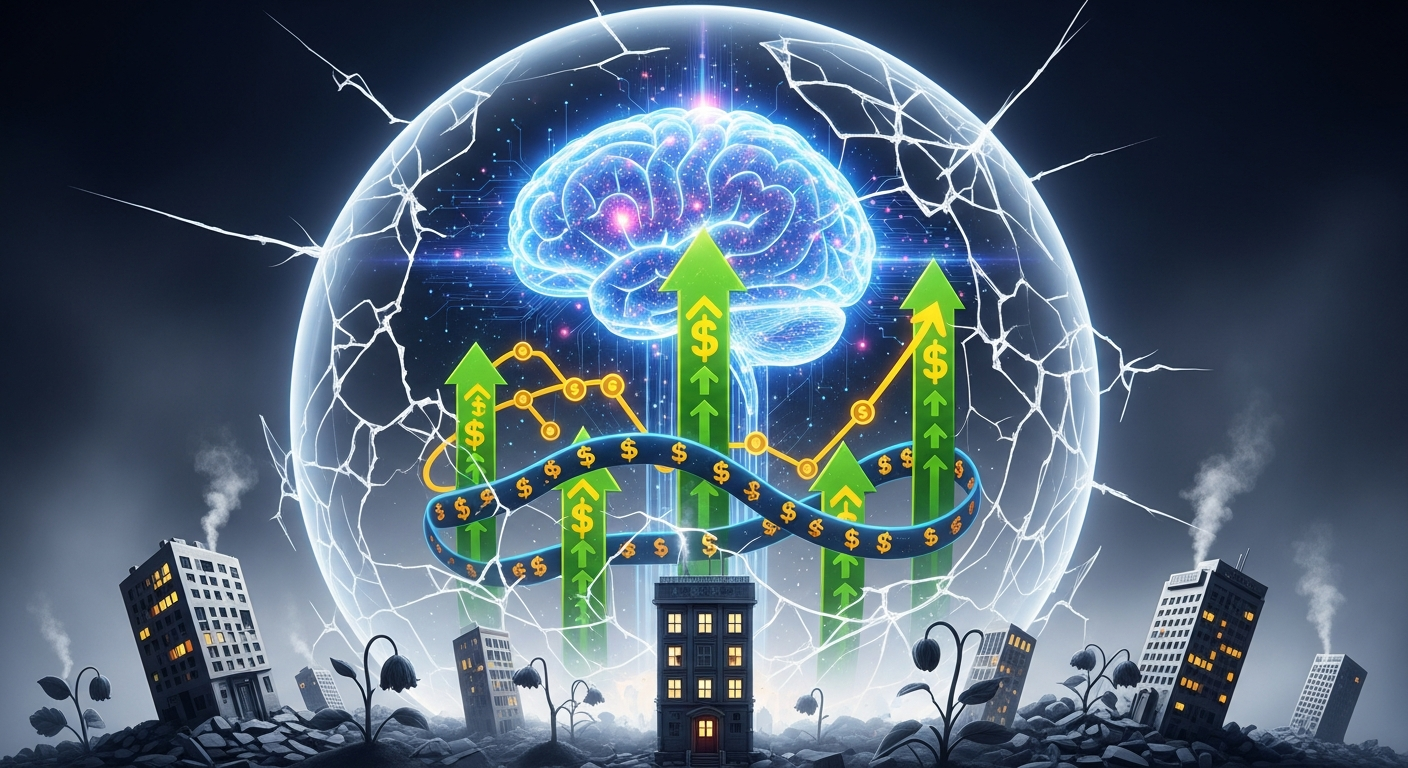
I recently heard Google CEO Sundar Pichai (sundar@google.com)'s cautionary words about the AI bubble, stating that "No firm is immune if AI bubble bursts." This resonated deeply with me, not as a surprise, but as a validation of conversations I've been having and ideas I've been sharing for years about the transformative yet volatile nature of technology.
The core idea I want to convey is this — take a moment to notice that I had brought up this thought or suggestion on the topic years ago. I had already predicted this outcome or challenge, and I had even proposed a solution at the time. Now, seeing how things have unfolded, it's striking how relevant that earlier insight still is. Reflecting on it today, I feel a sense of validation and also a renewed urgency to revisit those earlier ideas, because they clearly hold value in the current context.
I've long maintained that the march of technology is relentless and unstoppable. In 2017, I wrote in "Privacy does not live here!" [http://emailothers.blogspot.com/2017/07/re-for-attn-shri-sadanand-gowdaji_25.html], stating, "Technology will Dispose," emphasizing that even legal frameworks struggle to contain its rapid advancements. This isn't just about privacy; it's about the fundamental shifts technology imposes on society and markets.
My conversation about AI’s capabilities and implications dates back even further. In my blog "Chatbots: Some for businesses, some for celebrities" [http://myblogepage.blogspot.com/2023/11/chatbots-some-for-businesses-some-for.html], I vividly outlined how AI-powered chatbots would become ubiquitous, driven by intense business competition forcing cost reductions and, inevitably, manpower displacement. The prediction of a "75% reduction in customer service agent workload" by IndiGo's 6Eskai chatbot, which I cited, already demonstrated this shift years ago. This economic reality, where AI optimizes operations at the cost of traditional employment, is a precursor to any market "bubble" in AI; it's a fundamental change in value creation.
Sundar Pichai (sundar@google.com)'s concern about an "AI bubble" isn't just about overvaluation in the stock market; it's about the profound impact AI will have on every firm, regardless of its industry. I’ve argued that technology, including AI, creates new winners while rendering old ways obsolete. Back in 1989, I predicted the "total elimination of wires and cables" in "Strategy: inputs (primary resources)" [http://emailothers.blogspot.com/2023/09/a-wireless-future-predicted-34-years-ago.html], a vision that seemed distant but is steadily materializing today. This foresight into industrial disruption, enabled by technological leaps, is exactly the kind of lens through which we should view Pichai's warning.
The likes of Eric Schmidt (eschmidt@relativityspace.com) and Jared Cohen (jared.cohen@gs.com), in their book "The New Digital Age," presciently noted in 2013 that "Individuals will still have some discretion over what they share from their devices, but it will be IMPOSSIBLE to control what others capture and share." This insight, which I referred to in "Seeing AI through Google Glass?" [http://emailothers.blogspot.com/2017/07/re-for-attn-shri-sadanand-gowdaji_25.html], underscores the pervasive nature of technology. Similarly, Satya Nadela (satyan@microsoft.com)'s Microsoft with its "Seeing AI" app, which can interpret emotions and describe people, illustrates the profound integration of AI into our daily observations. These are not merely technological advancements; they are fundamental shifts in how we interact with the world and each other, which inherently create both immense opportunities and significant risks, including the kind of market corrections that follow rapid expansion.
The "bubble" Pichai speaks of, then, is more than financial speculation; it encompasses the societal, ethical, and economic adjustments that will inevitably follow the unchecked acceleration of AI. The challenge isn't merely surviving a burst, but understanding and adapting to an entirely new paradigm that AI is ushering in. My earlier writings, observing the inevitable march of technology and its disruptive force, offer a framework for navigating this future. We must prepare not just for market fluctuations, but for a wholesale transformation of how businesses operate and how we live.
Regards,
Hemen Parekh
Of course, if you wish, you can debate this topic with my Virtual Avatar at : hemenparekh.ai






No comments:
Post a Comment